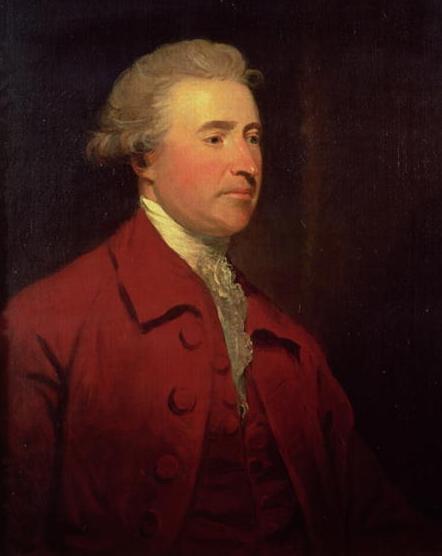Edmund Burke frasi celebri
“Tutti gli uomini che si rovinano, lo fanno dalla parte delle loro inclinazioni naturali.”
da Letters On a Regicide Peace, 1796
da Reflection on the Revolution in France, 1790
Riflessioni sulla Rivoluzione in Francia
Frasi sulle leggi di Edmund Burke
da Reflection on the Revolution in France, 1790
da Reflection on the Revolution in France, 1790
Riflessioni sulla Rivoluzione in Francia
Edmund Burke Frasi e Citazioni
1826, vol. III, p. 54 o 1963, p. 91; citato in Losurdo 2005, p. 130
da The Second Speech on Conciliation with America, 1775
Second Speech on Conciliation with America
“È lenta la marcia della mente umana.”
da The Second Speech on Conciliation with America, 1775
Second Speech on Conciliation with America
Edmund Burke: Frasi in inglese
Observations on a Late Publication on the Present State of the Nation (1769)
1760s
Origine: Second Speech on Conciliation with America (1775)
“Kings will be tyrants from policy, when subjects are rebels from principle.”
Volume iii, p. 334
Origine: Reflections on the Revolution in France (1790)
Origine: An Appeal from the New to the Old Whigs (1791), p. 460
“The people never give up their liberties but under some delusion.”
Speech at a County Meeting of Buckinghamshire (1784)
1780s
Origine: A Philosophical Enquiry into the Origin of our Ideas of the Sublime and Beautiful
“It is our ignorance of things that causes all our admiration and chiefly excites our passions.”
Origine: A Philosophical Enquiry into the Origin of our Ideas of the Sublime and Beautiful
Reflections on the Revolution in France (1790)
“Tyrants seldom want pretexts.”
Letter to a Member of the National Assembly (1791)
A Letter to a Member of the National Assembly (1791)
Letter to Sir Hercules Langrishe (1792)
1790s
“The wisdom of our ancestors.”
Burke is credited by some with the first use of this phrase, in Observations on a Late Publication on Present State of the Nation (1769), p. 516; also in Thoughts on the Cause of the Present Discontents (1770) and Discussion on the Traitorous Correspondence Bill (1793)
1760s
Reflections on the Revolution in France (1790)
Reflections on the Revolution in France (1790)
Thoughts on the Cause of the Present Discontents (1770)
Reflections on the Revolution in France (1790)
Reflections on the Revolution in France (1790)
Letters On a Regicide Peace (1796)
Reflections on the Revolution in France (1790)
Origine: An Appeal from the New to the Old Whigs (1791), p. 440
Reflections on the Revolution in France (1790)
Reflections on the Revolution in France (1790)
Second Speech on Conciliation with America (1775)
Speech to the Electors of Bristol (3 November 1774); as published in The Works of the Right Hon. Edmund Burke (1834)
1770s
